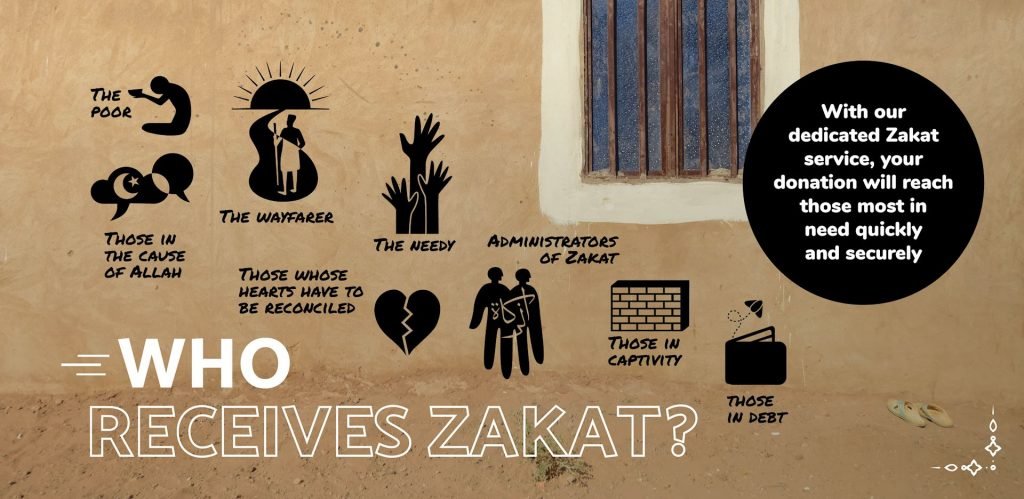Zakaat - Importance of Zakat in Islam
Zakaat is the Fourth Pillar of Islam. It is an annual payment made by Muslims. It is not a tax imposed by Islam, but a due fixed by Allah (S.W.T) so that the wealth of a person may be purified. Zakat becomes due on savings which have been kept for one full year.
Two and a half percent (2.5 %) of the total money is given to the poor and needy. For, example, if a person has £100.00 in savings which he has kept for a year, Zakat of £2.50 will be Farz on him. It is important to note that Zakat is paid by each person not each household.
Zakat is an act of worship. It is also a way of showing sympathy to those who are less fortunate. It is meant to take away from our hearts greed and the love of money. It is also to build the gap between the rich and the poor. It is a Hadith of the Prophet (S.A.W) reported by Hazrat Abu Huraira (R.A) that: “Every morning two angels come down from the Heaven. One says, “O Allah! Reward all those who give in Your cause,” while the other says, “O Allah! Uproot every miser who withholds”.
Charity is not just recommended by Islam, it is required of every financially stable Muslim. Giving charity to those who deserve it is part of Muslim character and one of the Five Pillars of Islamic practice. Zakat is viewed as “compulsory charity”; it is an obligation for those who have received their wealth from God to respond to those members of the community in need. Devoid of sentiments of universal love, some people know only to hoard wealth and to add to it by lending it out on interest. Islam’s teachings are the very antithesis of this attitude. Islam encourages the sharing of wealth with others and helps people to stand on their own and become productive members of the society.
In Arabic it is known as zakat which literally means “purification”, because zakat is considered to purify one’s heart of greed. Love of wealth is natural and it takes firm belief in God for a person to part with some of his wealth. Zakat must be paid on different categories of property — gold, silver, money; livestock; agricultural produce; and business commodities — and is payable each year after one year’s possession. It requires an annual contribution of 2.5 percent of an individual’s wealth and assets.
Like prayer, which is both an individual and communal responsibility, zakaat expresses a Muslim’s worship of and thanksgiving to God by supporting those in need. In Islam, the true owner of things is not man, but God. Acquisition of wealth for its own sake, or so that it may increase a man’s worth, is condemned. Mere acquisition of wealth counts for nothing in the sight of God. It does not give man any merit in this life or in the hereafter. Islam teaches that people should acquire wealth with the intention of spending it on their own needs and the needs of others.
“Man’, said the Prophet, ‘says: My wealth! My wealth!’ Have you not any wealth except that which you give as alms and thus preserve, wear and tatter, eat and use up?”
The whole concept of wealth is considered in Islam as a gift from God. God, who provided it to the person, made a portion of it for the poor, so the poor have a right over one’s wealth. Zakat reminds Muslims that everything they have belongs to God. People are given their wealth as a trust from God, and zakat is intended to free Muslims from the love of money. The money paid in zakaat is not something God needs or receives. He is above any type of dependency. God, in His boundless mercy, promises rewards for helping those in need with one basic condition that zakaat be paid in the name of God; one should not expect or demand any worldly gains from the beneficiaries nor aim at making one’s names as a philanthropist. The feelings of a beneficiary should not be hurt by making him feel inferior or reminding him of the assistance.
Money given as zakat can only be used for certain specific things. Islamic Law stipulates that alms are to be used to support the poor and the needy, to free slaves and debtors, as specifically mentioned in the Quran (9:60). Zakat, which developed fourteen hundred years ago, functions as a form of social security in a Muslim society.

